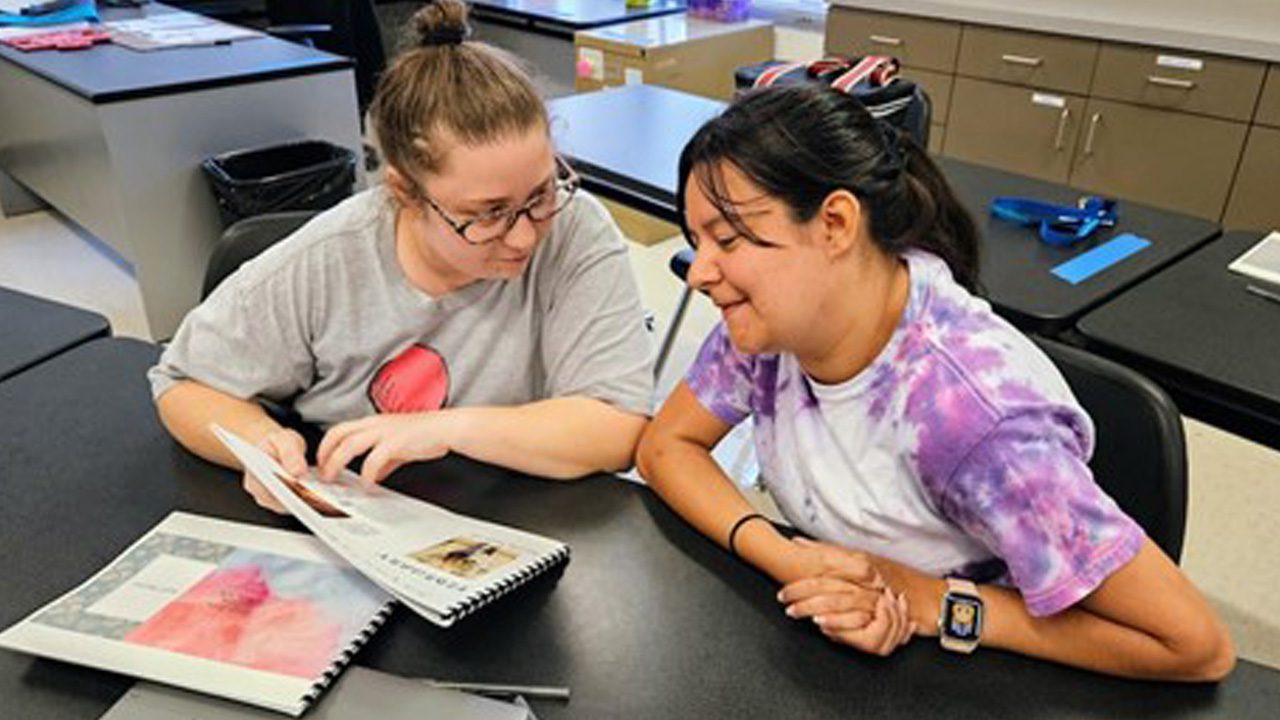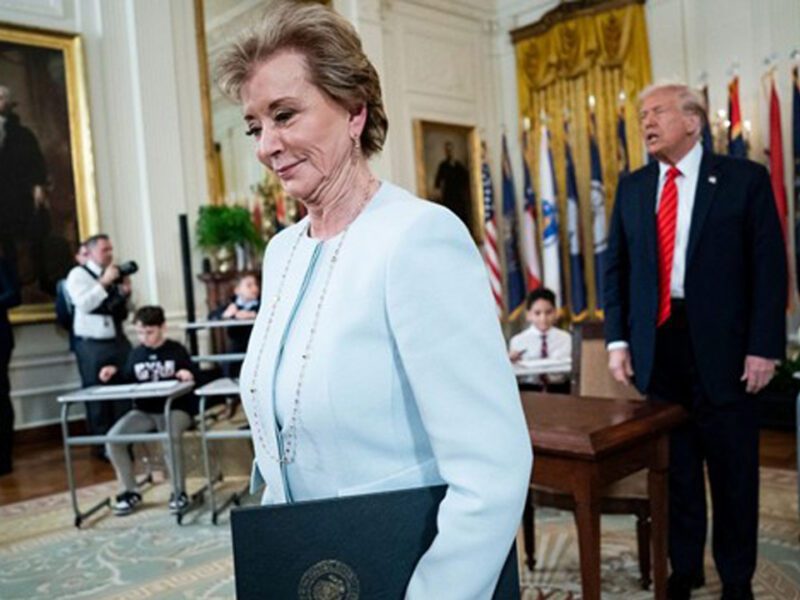
Parents worry about adult children with disabilities as Pasco schools program ends
Tampa Bay Times | By Jeffrey S. Solochek | May 28, 2024
District officials canceled the program this year, saying its grant funding ran out more than a decade ago
Just after noon on Friday — the last day of classes in Pasco County schools — teacher Kim Taylor handed out everyone’s long-awaited personalized class yearbooks.
Students in the Adults With Disabilities program, housed at Marchman Technical College in New Port Richey, had designed the books themselves, and long had looked forward to signing each other’s copies with well wishes for a great summer.
But the year-end tradition carried more bitter than sweet this spring as the students, some of whom have known each other since kindergarten, wouldn’t be coming back together in the fall. This day marked the official end of their program, leaving the majority of them uncertain about what lay next in their future.
District officials announced in April that the grant funding for the model had run out in 2012, and the district no longer would cover the costs from its general operating budget.
“I’m upset and sad,” said April Worrell, 28, who has attended for the past three years. “I try not to go into depression mode, but certain things get me into it.”
Worrell collected her friends’ phone numbers so she might contact them away from school. She said she had no set future plans.
Not that finding a replacement program would be easy.
Taylor said most of the students would not qualify for the school’s new state-funded career transition course for adults with disabilities because they don’t meet specific grant requirements. April Menendez, whose 26-year-old daughter, Julie, participated in the school class, added that most other options in the vicinity lack an education component, cost hundreds of dollars while the district program was free. And they have lengthy waiting lists.
Many who thrived in the class with Taylor will end up “sitting home and doing nothing,” said Menendez, who recently brought her concerns to the Pasco school board. “Where do we go? What do we do?”
School and district officials met with each student and family members last week to discuss future possibilities. They held out little hope that the district might reverse course.
Lori Romano, the district’s director of career and technical education, said the program offered many positive benefits for these adults, but it had no clear accountability measures. She likened it to a “great daycare” for free, something outside the role of the school system.
“At the end of the day, you’ve got to have outcomes to support the services you’re providing,” Romano said.
Superintendent Kurt Browning said he did not expect to use district dollars to pay the bills any longer.
Menendez took issue with the district’s stance. She contended that the program did much more than provide a gathering spot, though socialization skills were among those Taylor taught to the adult students, many who have autism.
It included other lessons, too, she said, such as reading and basic financial literacy. Students learned how to use computers, had monthly thematic units and took outings into the community to learn how to survive more independently, she added.
“We’ve had to accept that they have some limitations, and we’ve learned to live with them,” Menendez said. “It’s so disheartening when they narrow kids to a data point.”
She said families would be willing to pay a fee, or help find funding, if asked.
Alexandria “AJ” Deskins, 30, joined the program last fall. Legally blind because of a rare eye disease, Deskins said she did a “whole lot of sitting around” since graduating from high school in 2012, until she discovered this opportunity.
“It gives much more confidence in the things I’ve learned in math and reading,” she said, winning praise from Taylor for becoming a stronger advocate for her needs. “I have made such good friends in here that have made me much more confident.”
Deskins said she understood the district’s explanations for closing the program. But that does little for the students, who have little time to find something new.
“We need a lot more programs like this,” she said.
Taylor said she worried for the students. She noted that while at school, they learned important lessons from a variety of the teachers at Marchman, participating in programs as wide ranging as cosmetology to early childhood.
They tended a school garden, ran a clothes closet and did the school’s laundry, while also helping others on campus to be more empathetic to people with disabilities, she said.
“A lot of (other) programs out there are pricey,” Taylor said. “What a loss this is. It leaves a gaping hole.”
School board chairperson Megan Harding said the students deserve to have opportunities for academic challenges. While the change is not a board decision, Harding said, she encouraged the superintendent and staff to keep such ideas in mind.
She also lamented the spot the families are in. The district apparently knew about the closure in December but didn’t tell anyone until April, Harding said.
“A lot of the heartbreak could have been avoided,” she said.
As the last day wound down, the students and their teachers shared cookies and memories of good times, hoping for the best.
“I will figure it out as I go along,” student Jacob Peckham said between yearbook signings. “It was a great class.”





